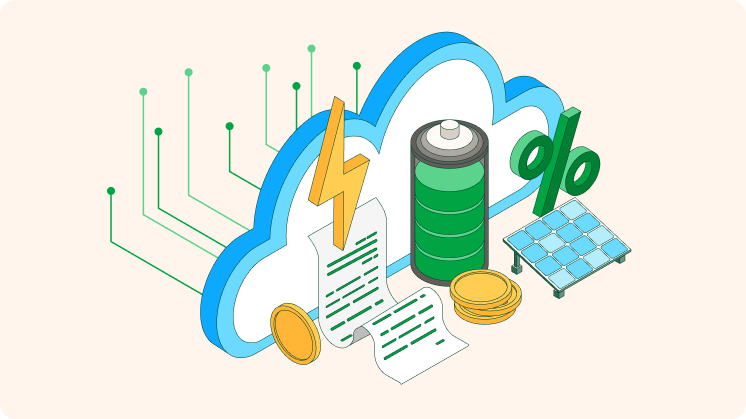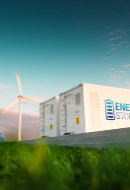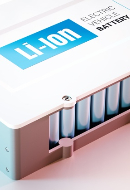Iberdrola's virtual batteries: revolutionising energy management
Virtual batteries: an energy solution of the future
Photovoltaic energy Photovoltaic self-consumption
Virtual batteries have emerged in the energy market as a practical and sustainable alternative to save, drive and secure the consumption of energy obtained through solar panels installed on homes. But what are they really and how do they work, what are their advantages and why are they important?

The virtual battery is an innovative solution for making the most of the surpluses generated in a self-consumption installation. This new virtual storage mechanism is gaining more and more followers and has sparked consumer interest in self-consumption.
What are virtual batteries?
Virtual batteries are a service offered by certain energy companies that can store surplus energy produced that has not been compensated on your bill. It is not a physical system, it’s a virtual energy saving system that allows the energy produced that has not been compensated to be accounted for and transformed into a credit balance for the user.
This technique is particularly useful for solar self-consumption installations, as when more energy is generated than consumed, the surplus is fed into the grid and the energy is offset on your electricity bill. When surpluses cannot be offset, they are stored in a virtual battery so that the energy can be used later.
An example of this system is Iberdrola España's Solar Cloud. Enlace externo, se abre en ventana nueva. If you are thinking of contracting a smart solar installation, Solar Cloud is the ideal complement, since the money from the surpluses you can’t offset accumulates to the customer's virtual wallet and taken off any of their energy contracts. If you already have a photovoltaic installation, you can also benefit from Solar Cloud.
Enlace externo, se abre en ventana nueva. If you are thinking of contracting a smart solar installation, Solar Cloud is the ideal complement, since the money from the surpluses you can’t offset accumulates to the customer's virtual wallet and taken off any of their energy contracts. If you already have a photovoltaic installation, you can also benefit from Solar Cloud.
Why store solar energy
With a virtual battery we can maximise the solar potential in countries with longer hours of sunshine by allowing users to store surplus energy generated during peak solar production hours that could not be offset on their bill. In a world in the midst of an energy transition from fossil to renewable energy sources, storage is key to integrating technologies such as solar photovoltaic.
Cómo funcionan las baterías virtuales
Cada vez más hogares y negocios apuestan por instalaciones solares fotovoltaicas de autoconsumo. Sin embargo, no siempre se usa toda la energía que se genera. En estas situaciones, las baterías virtuales ofrecen una solución innovadora y sostenible para ahorrar en la factura de la luz. Pero, ¿cómo funcionan?
- 1
La energía generada por los paneles solares que no se consume se vierte a la red eléctrica y se compensa hasta el término de energía*.
- 2
El excedente que supere esa cantidad se almacena en la batería virtual del cliente.
- 3
Esta energía almacenada se puede consumir en meses posteriores en los que la producción haya sido menor o incluso en una segunda residencia.
(*) Una factura de luz incluye el término de potencia, el término de energía y los costes regulados. La compensación de excedentes se aplica en el término de energía, concepto en el que se puede compensar. Sin embargo, la batería virtual Solar Cloud permite además descontar los excedentes del término de potencia y de los costes regulados.
Advantages of using virtual batteries
Energy storage in the cloud provides a number of differential benefits that make it an ideal complement to self-consumption External link, opens in new window. of energy. These are some of the most important advantages of virtual batteries:
External link, opens in new window. of energy. These are some of the most important advantages of virtual batteries:
When should they be used?
Cloud batteries are especially designed for homes with photovoltaic installations, an ideal combination for efficient energy management. There are certain specific cases that enhance them. The first are areas with plenty of sunlight or self-consumption installations that generate a lot of surpluses.
Furthermore, thanks to the virtual battery, you can use your surpluses in any of your homes. For example, if a customer has a main residence with a self-consumption installation and another apartment, they can balance both bills thanks to a cloud battery.

What is energy storage
Efficient energy storage is a fundamental pillar of the energy transition.

Sodium-ion batteries
The revolution in renewable energy storage.

Do you know about lithium-ion batteries?
Energy storage is essential for decarbonisation.

The benefits of energy efficiency
At Iberdrola we ensure efficient energy management.
How to make the best use of a virtual photovoltaic battery
The possibility of reducing the amount of electricity bills is very attractive, but it is worth bearing in mind some advice or characteristics to make better use of a cloud-based battery service.











